I’m not entirely sure I need to block out the email addresses here since they’re likely to be burner Gmail accounts, but I’ll give these spammers the courtesy they don’t deserve.
As shown below, they’ve been coming for over a year; there’s a chance I may have even received them in 2019.
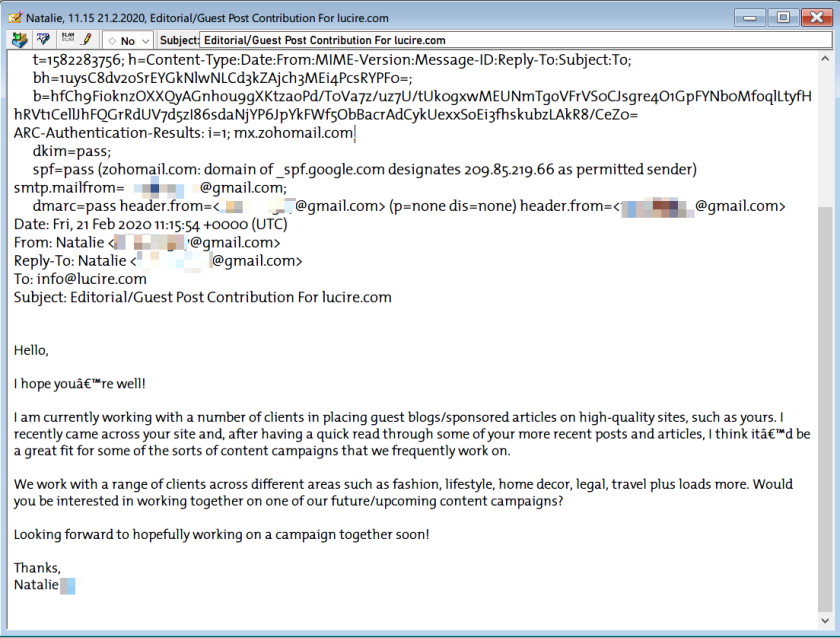



The text of the latest reads:
Hello,
I hope you’re well!
I am currently working with a number of clients in placing guest blogs/sponsored articles on high-quality sites, such as yours. I recently came across your site and, after having a quick read through some of your more recent posts and articles, I think it’d be a great fit for some of the sorts of content campaigns that we frequently work on.
I work with a range of clients across different areas such as fashion, lifestyle, home decor, legal, travel plus loads more. Would you be interested in working together on one of our future/upcoming content campaigns?
Looking forward to hopefully working on a campaign together soon!
First up, I already know they never visited since the latest refers to Lucire as a ‘blog’ in its subject line. Just because you run Wordpress doesn’t mean it’s a blog.
A more crazy one recently actually requested we publish something at lucire.net, which is a brochureware site with no posts on it—so I don’t think they are even hunting specifically for Wordpress-driven sites. Anything will do.
Last year, I replied to one of them, thinking they could be a legit enquiry for advertorial. It went nowhere, since, as far as I know, they were just after backlinks, and not prepared to pay what a commercial advertorial purchaser would.
I wouldn’t have been any the wiser if they didn’t keep repeating the messages, and it seems that during the last few weeks they’ve shifted into high gear. And when you know they’re spam, the innocent experience that you had in 2020 suddenly becomes a supreme waste of time.
I know, all the signs are there: they run Gmail accounts and there are no signature files or details of what company they represent. Gmail, to me, has plenty of spammers, and it is not the service used by professionals. (When 200 people can share the same email address, why would you?) But there was that charitable side of me wondering if the first one was just someone who had shifted to working from home and trying to make a buck. I didn’t really think, since I’m not of this mind myself, that it was spam and that I was a mark.
I now have common phrases from the spams fed in to my filters so these will just go into the trash folder. I’m posting this in case others have received these spams, and wish to do the same.
Here’s a recent Tweet of mine. Not altogether an accurate one, but when I wrote it I genuinely believed Facebook claimed it had 2 milliard users.
Remember when I said #Facebook probably only had 750 million users? Now, if they claim to have deleted 1·3 milliard bots, and they also claim to have 2 milliard users, then surely my maths was right? https://t.co/3KsC82G9ur
— Jack Yan 甄爵恩 (@jackyan) March 24, 2021
As Don Marti says, the fact Facebook even has to claim this tells us they are fighting a losing battle.
On one of the groups I administer there, I’d say over 99 per cent of the members’ queue are bots. Here’s a typical screen in botland, I mean, Facebook:
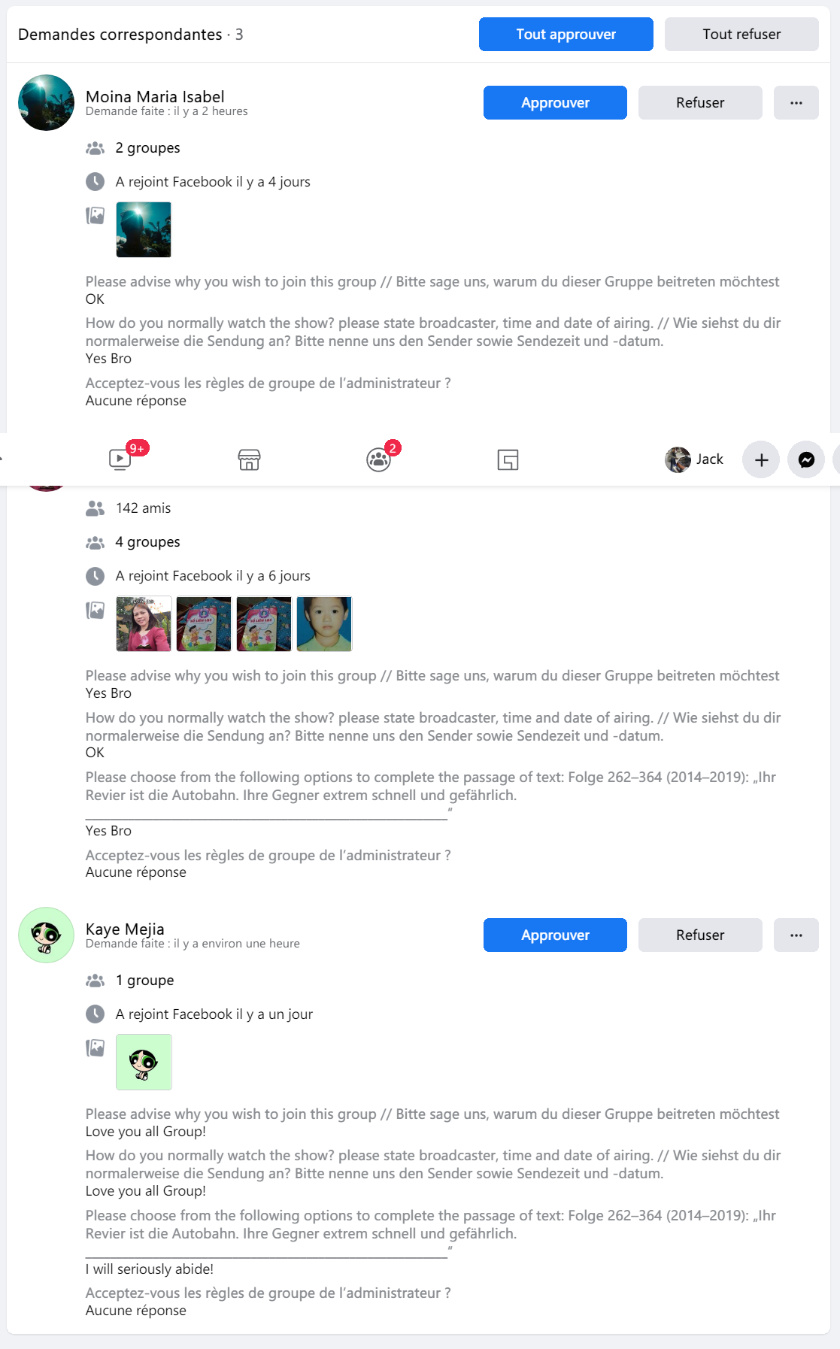
These are common patterns and I see them all the time; they all use a variety of responses but they all come out of the same program. ‘I will seriously abide!’, ‘Yes bro’ and ‘OK bro’ are pretty common, and there are others.
The thing is, I’ve seen these for years, reported each one as a fake account (since there is no option for ‘they are using automated software’), and in 99 per cent of cases (no exaggeration; in fact I may be underestimating), Facebook tells me there is no violation of their terms of service.

This can mean only one of two things: Facebook is too stupid to realize that an account that feeds the same things into group questionnaires constantly is a bot or running some sort of software that is not permitted under its own terms; or these accounts exist with Facebook’s blessing.
In the queues, legitimate humans are being outnumbered by over 99 to 1, and if this is a representative sample of Facebook’s current user base (I’m betting I see more accounts than the average person), then hardly anyone is on site any more. I wouldn’t know, I only check client pages and this queue for the most part.
But if you wish to waste your money advertising to bots on the Facebook platform, then be my guest. Zuckerberg and co. are already getting enough money for doing nothing useful.
I wonder if I’m getting more Twitter fatigue after 14 years. I have built up a fun network there, especially of car people that I made a point of following over the last couple of years. But the cellphone keyboard is such a fidgety, impractical and slow device, I’ve found myself starting to respond, even writing the first few words of a Tweet, then giving up. This has had wonders on my email inbox as the number of messages drops. I’m getting through stuff.
Fortunately for Twitter, Jack Dorsey hasn’t come across as big a dick as the Facebook and Google people, and the man has been doing some good with his money, like donating US$1 milliard to COVID-19 research. Yes, Twitter still has some major problems, especially when it comes to censorship, but when someone says, ‘I can afford to give that away because I’d still be a rich bastard with the US$2 milliard I have left,’ it’s actually a contrast to Jeff Bezos and Mark Zuckerberg. Unlike the latter, he also hasn’t been publicly lying and calling us ‘dumb f***s’.
Even so, more often than not I now find myself stopping. Is Tweeting that really worth it? Who cares? So I have a different opinion to that person. I don’t need a global audience for it. If I feel strongly enough, and have the time, there’s always long-form blogging.
Finally, here’s a page explaining just why Google is corrupt.
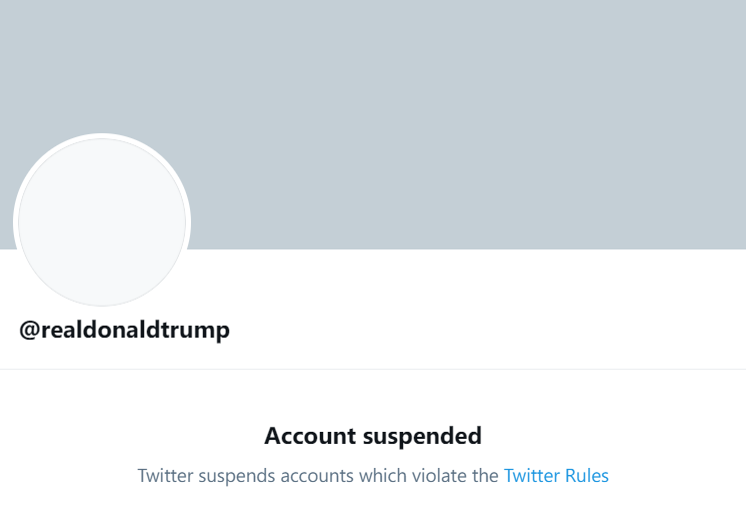
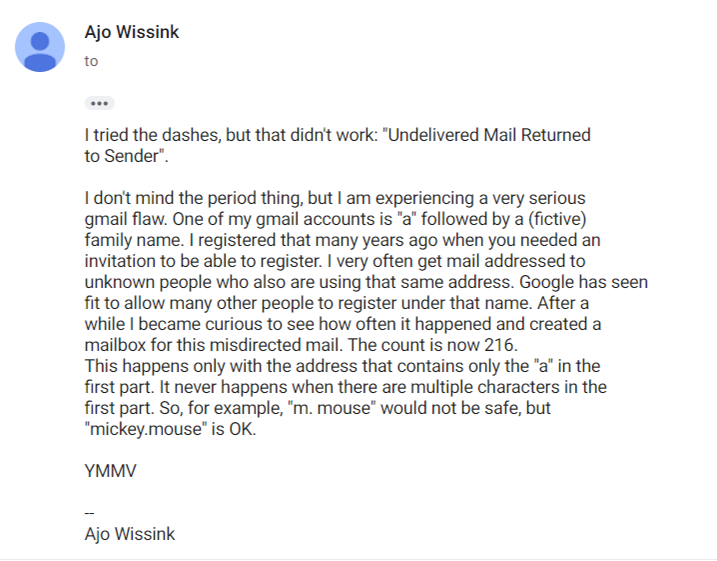
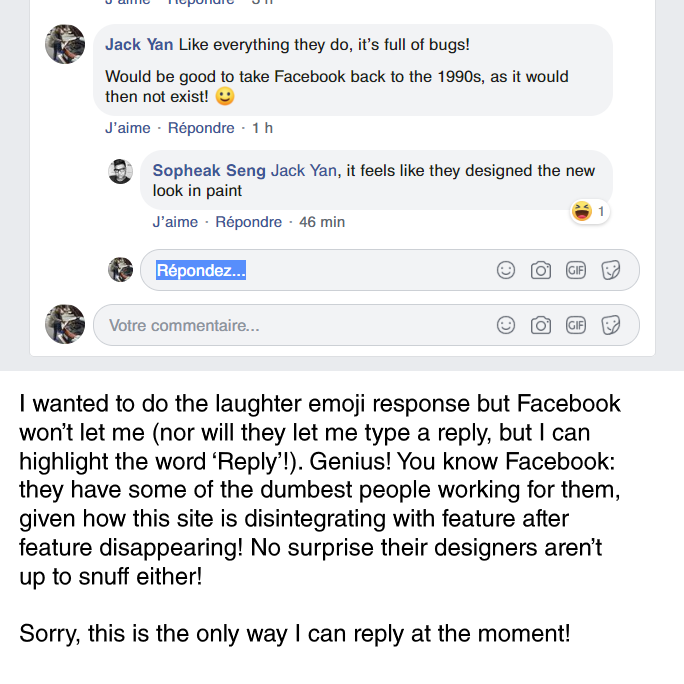

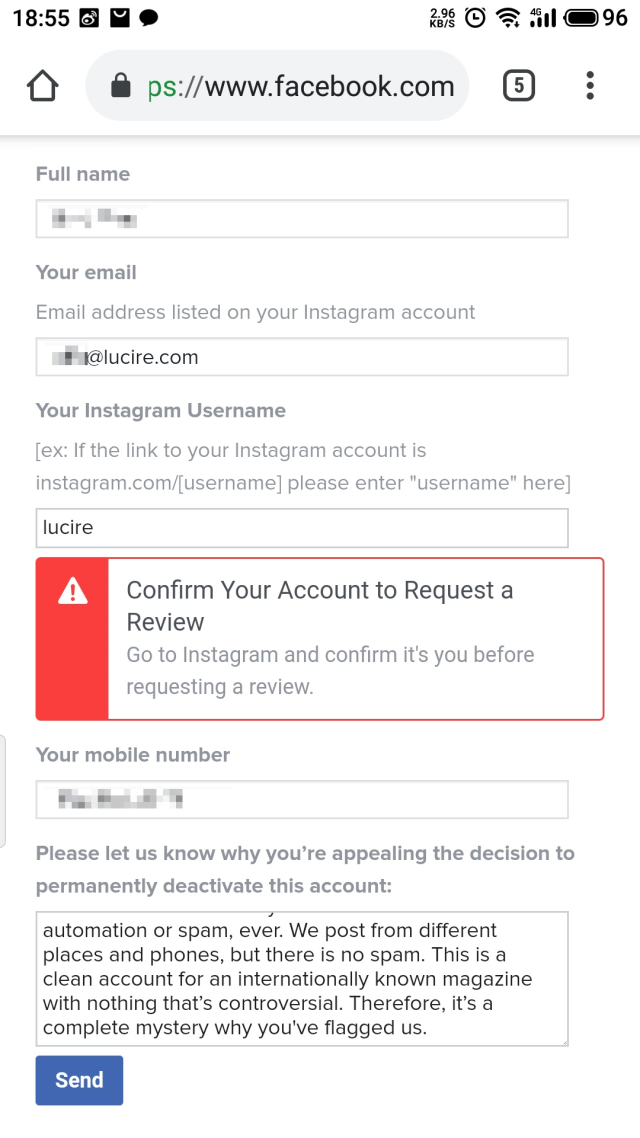

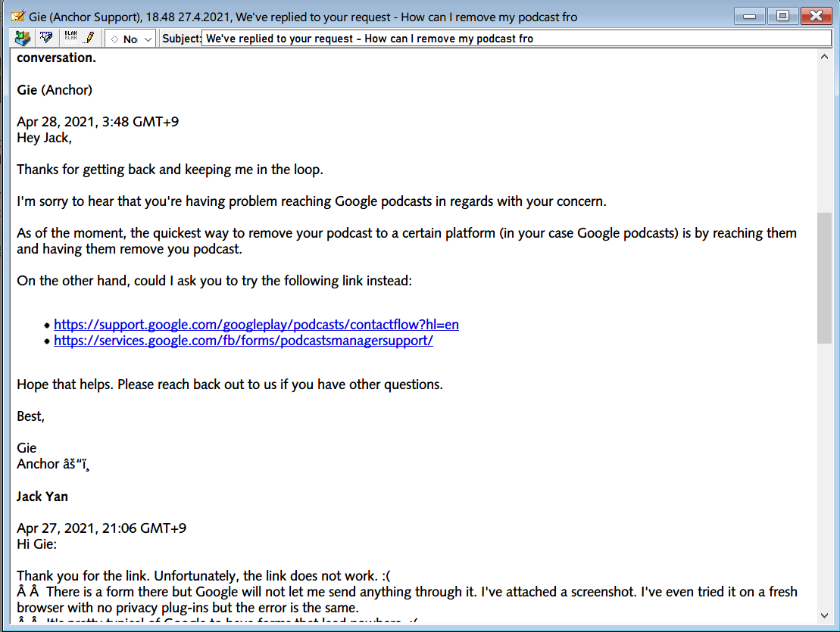
One thought on “Computing in 2021: Gmail’s advertorial spammers, Facebook bots, and Twitter fatigue”